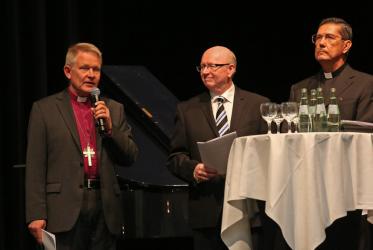Displaying 201 - 220 of 287
16 December 2014
WCC general secretary welcomes Muslim scholars’ letter
30 September 2014
Indigenous faith leaders reflect on resilience and climate change
23 September 2014
Weaving together personal faith and climate change
23 September 2014
Heal the earth, fight against climate change
22 September 2014
“We have to build new bridges”
28 August 2014








